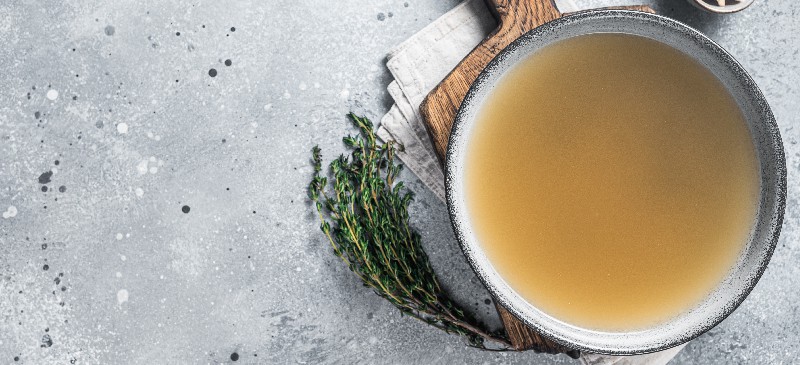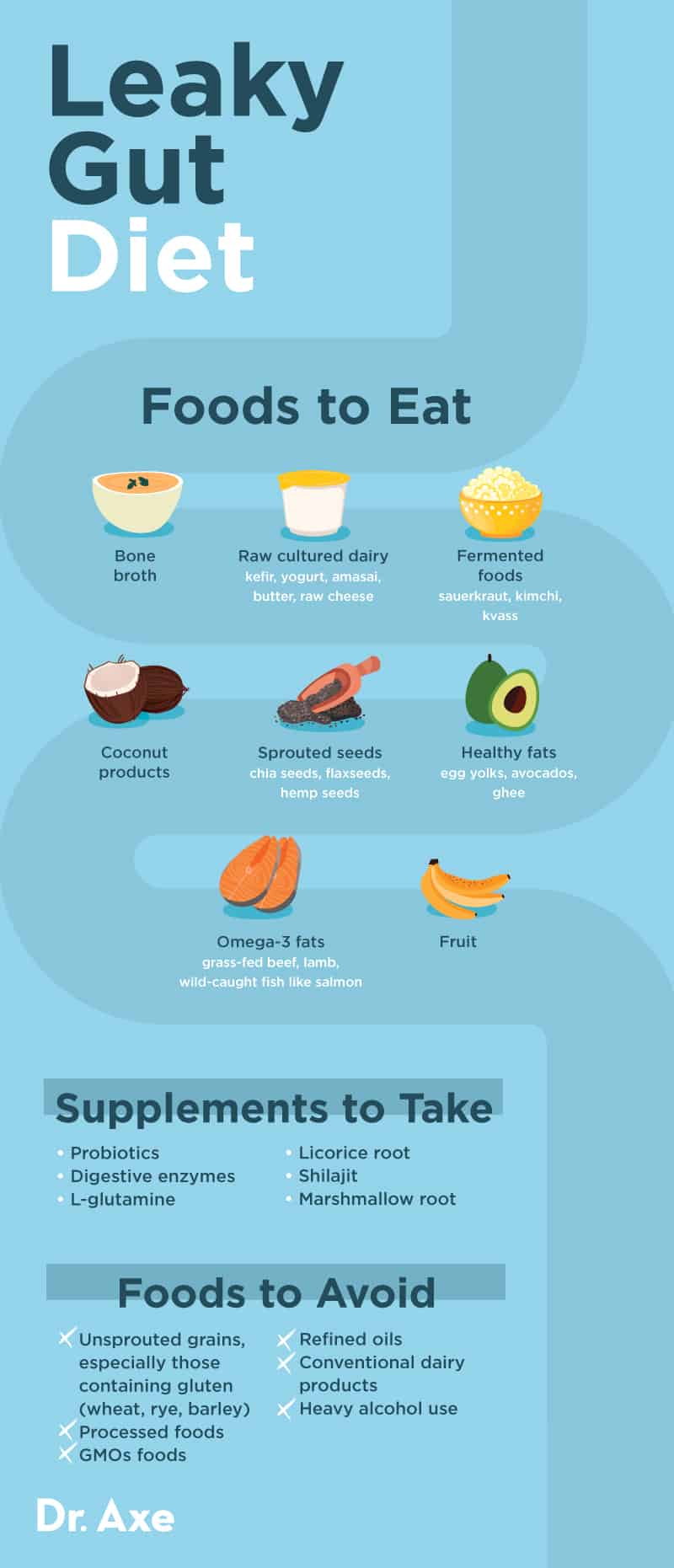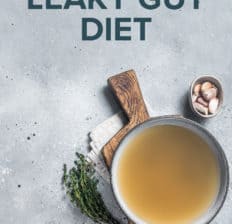This Dr. Axe content is medically reviewed or fact checked to ensure factually accurate information.
With strict editorial sourcing guidelines, we only link to academic research institutions, reputable media sites and, when research is available, medically peer-reviewed studies. Note that the numbers in parentheses (1, 2, etc.) are clickable links to these studies.
The information in our articles is NOT intended to replace a one-on-one relationship with a qualified health care professional and is not intended as medical advice.
This article is based on scientific evidence, written by experts and fact checked by our trained editorial staff. Note that the numbers in parentheses (1, 2, etc.) are clickable links to medically peer-reviewed studies.
Our team includes licensed nutritionists and dietitians, certified health education specialists, as well as certified strength and conditioning specialists, personal trainers and corrective exercise specialists. Our team aims to be not only thorough with its research, but also objective and unbiased.
The information in our articles is NOT intended to replace a one-on-one relationship with a qualified health care professional and is not intended as medical advice.
The Leaky Gut Diet and Treatment Plan, Including Top Gut Foods
April 6, 2023

Leaky gut syndrome is a condition that’s thought to affect millions of people, many of whom don’t even know it. The good news is following a leaky gut diet can help overcome this condition.
From the sound of it, you might think leaky gut syndrome only impacts digestive health, but in reality it can lead to many other health conditions. For example, according to recent research, the cause of your food allergies, fatigue, joint pain, thyroid disease and autoimmune conditions may be a leaky gut.
What is the fastest way to treat leaky gut? Following a healing leaky gut syndrome diet is one of the best strategies for getting your body back on track.
In this article, I outline specifically how a leaky gut diet works, so you can break through some of the stubborn health problems you’ve been struggling with.
What Is Leaky Gut?
Leaky gut syndrome is a condition that affects the integrity of the gut lining, which normally serves as the barrier of the intestines. Also called “intestinal permeability,” it occurs when the gut wall becomes damaged, allowing compounds to enter become absorbed into the bloodstream that normally shouldn’t.
For example, partially digested proteins and fats may seep through the intestinal lining, making their way into the bloodstream, which causes an allergic response.
Causes/Symptoms
How do you know that you may benefit from a leaky gut treatment plan? One of the biggest warning signs that you may have leaky gut is that you’re experiencing multiple food sensitivities.
Allergic responses caused by a leaky gut don’t necessarily mean you’ll break out in a rash all over your body, but it can lead to various other symptoms. Some potential symptoms linked to leaky gut can include:
- Bloating
- Food sensitivities
- Thyroid conditions
- Fatigue
- Joint pain
- Headaches
- Skin issues, like rosacea and acne
- Digestive problems
- Weight gain
If not repaired, intestinal permeability can potentially lead to more severe health issues, such as:
- inflammatory bowel disease or IBS
- arthritis
- eczema
- psoriasis
- depression
- anxiety
- migraine headaches
- muscle pain
- chronic fatigue
According to research published in the Journal of Diabetes, there is a strong body of evidence suggesting that leaky gut syndrome is related to certain autoimmune diseases, such as type 1 diabetes.
Additionally, another problem with leaky gut is that it can cause malabsorption of vital minerals and nutrients, including zinc, iron and vitamin B12.
Experts recommend that you take a leaky gut test to better identify if this may be a root cause of your symptoms and to help pinpoint potential contributing factors.
What causes leaky gut?
Leaky gut can be caused by a number of factors, including:
- a poor diet (low in fiber and high in sugar)
- smoking
- alcohol use
- frequent use of some medications
- genetic predisposition
Some potential dietary causes include:
- Lectins — These are found in many foods, not just grains, and when consumed in smaller amounts, your body normally does just fine with them. But foods that have large amounts of lectins are more problematic. Some of the lectins and foods that cause leaky gut include wheat, rice, spelt and soy.
- Conventional cow’s milk — This is another food that can cause leaky gut. The component of dairy that harms your gut is the protein A1 casein. Also, the pasteurization process destroys vital enzymes, making sugars like lactose very difficult to digest. For this reason, I only recommend buying raw dairy and from A2 cows, goats, sheep or buffalo.
- Gluten-containing grains — These may damage your intestinal lining depending on how well you tolerate them. Once your gut is healthy, you can likely add back in grains that have been fermented and sprouted to eat occasionally.
- Sugar — Added sugar is another substance that can wreak havoc on your digestive system when eaten in large amounts. Sugar can feed the growth of yeast, candida and bad bacteria, which further damages your gut. Bad bacteria actually creates toxins called exotoxins that damage healthy cells and can eat a hole into your intestinal wall.
Leaky Gut Diet Foods to Eat
If you suffer from leaky gut syndrome, you’re overdue to consider adopting a leaky gut diet. Such a diet contains foods that support healing because they are easy to digest and can help repair the lining of the intestines.
Here are the best foods to include in a leaky gut syndrome diet:
- Bone Broth — Bone broth contains collagen and the amino acids proline and glycine that can help heal your damaged cell walls. I’ve had many of my patients do a bone broth fast for three days to help treat leaky gut and autoimmune disease.
- Raw Cultured Dairy — Raw dairy contains beneficial bacteria when fermented and short-chain fatty acids that can help heal the gut. Pastured kefir, yogurt, amasai, butter and raw cheese are some of the best options.
- Fermented Foods — In addition to fermented dairy products, fermented vegetables are some of the healthiest probiotic foods. They contain organic acids that balance intestinal pH and probiotics to support the gut. Sauerkraut, kimchi and kvass are excellent sources.
- Coconut Products — All coconut products are especially good for your gut. The medium-chain fatty acids in coconut are thought to be easier to digest than other fats so they work well for maintaining digestive health. Also, coconut kefir contains healthy microbes that support your digestive system.
- Sprouted Seeds — Chia seeds, flaxseeds and hemp seeds that have been sprouted are great sources of fiber that can help support the growth of beneficial bacteria. If you have severe leaky gut, you may need to start out getting your fiber from steamed vegetables and fruit.
- Healthy Fats — Consuming healthy fats in moderation like egg yolks, avocados, ghee and coconut oil is easy on the gut and promotes nutrient absorption.
- Omega-3 Fats — Certain protein foods also contain healthy omega-3 fats, such as grass-fed beef, lamb and wild-caught fish like salmon.
- Fruit – Consuming one to two servings of fruit daily is a good way to obtain vitamins and minerals. You can steam apples and pears to make homemade apple sauce or fruit sauce. Fruit is best consumed in the morning and not later on in the day, and remember to keep fruit intake in moderation.
In addition to eating a leaky gut diet, you can help repair your gut with certain supplements.
In a leaky gut treatment plan, there are many supplements that support digestive health as well as protect the gut lining from further damage. I believe the six most beneficial leaky gut supplements are:
- Probiotics (50–100 billion units daily) — This is the most important supplement to take because it helps replenish good bacteria and crowds out bad bacteria. I recommend getting probiotics in both food and supplement form. By only following part of the protocol in treating leaky gut syndrome by removing the damaging irritants, you may fail to re-inoculate the gut with beneficial bacteria that will keep bad bacteria at bay. Based on available research, look for strains like Bacillus clausii, Bacillus subtilis, Saccharomyces boulardii and Bacillus coagulans.
- Digestive enzymes (one to two capsules at the beginning of each meal) — These ensure that foods are fully digested, decreasing the chance that partially digested foods particles and proteins are damaging your gut wall.
- L-Glutamine — Critical for any program designed to heal leaky gut, glutamine powder is an essential amino acid supplement that has anti-inflammatory properties and is necessary for the growth and repair of your intestinal lining. L-glutamine benefits include acting as a protector, coating your cell walls and acting as a repellent to irritants.
- Licorice Root — An adaptogenic herb that helps balance cortisol levels and improves acid production in the stomach, licorice root supports the body’s natural processes for maintaining the mucosal lining of the stomach and duodenum. This herb is especially beneficial if someone’s leaky gut is caused by emotional stress due to how it can help improve the way you produce and metabolize cortisol.
- Shilajit — A tar-like medicinal herb used frequently in Ayurvedic medicine, shilajt can protect from stomach ulcers as well as reduce inflammation triggered or exacerbated by leaky gut.
- Marshmallow Root — Because it has antioxidant and antihistamine properties, marshmallow root makes a great addition to any natural medicine cabinet, particularly for those struggling with gut-related issues.

Leaky Gut Diet Foods to Avoid
What foods should you avoid if you have leaky gut syndrome? It’s essential to avoid or greatly limit allergens and inflammatory foods when following a leaky gut diet.
Foods/ingredients to avoid include:
- Unsprouted grains, especially those containing gluten (wheat, rye and barley) — note that sprouting and fermenting grains reduces phytates and lectins, making these foods easier to digest
- Processed foods made with added sugar
- GMOs foods (GMO and hybridized foods tend to be the highest in lectins since they have been modified to fight off bugs)
- Refined oils
- Processed foods made with synthetic food additives
- Conventional dairy products
- Heavy alcohol use
Leaky Gut Diet Sample Menu
Based on the recommendations above regarding the best and worst leaky gut foods, here is what a few days of meals might look like when following a leaky gut diet plan:
Day #1
- Breakfast: avocado on sprouted grain toast topped with sauerkraut and tomatoes
- Lunch: salad topped with sliced grass-fed steak and cooked or cultured veggies
- Dinner: stir-fry made with mixed veggies and protein of our choice
Day #2
- Breakfast: yogurt parfait made with plain yogurt, chia seeds and berries
- Lunch: cooked fish, such as salmon, with steamed veggies topped with olive oil
- Dinner: seared chicken served with a mixed salad or vegetable soup
Day#3
- Breakfast: smoothie made with coconut milk, kefir or raw milk, sprouted almond butter and collagen protein powder
- Lunch: chicken salad made with yogurt and avocado, served with veggies or salad
- Dinner: steak or fish served with vegetable soup
Other Tips for Gut Health
In addition to following the eating plan described above, it’s beneficial to avoid exposure to potential “toxins” found in to tap water, alcohol, cigarettes, pesticides, NSAID pain-killer medications and antibiotics, all of which can stress the gut. However, always consult with your physician if he or she has prescribed these for you.
Another tip is to consider following an elimination diet at first. Some foods seem to be in a “gray area” when it comes to worsening or promoting digestive health. For example, some people do better with certain protein foods than others do.
You may be wondering, are eggs bad for leaky gut? What about beans and legumes?
You may choose to eliminate eggs and legumes at first and then to try reintroducing them after several weeks. This can help you uncover whether they are problematic for you or not.
In place of eggs and legumes, try meat, poultry, fish and collagen protein or bone broth protein powder instead.
Reducing intake of FODMAP foods is also recommended as part of an elimination diet, since FODMAP carbohydrates can worsen digestive issues like bloating and gas.
Conclusion
- Also called intestinal permeability, leaky gut is a condition that occurs when the intestinal lining becomes damaged.
- Not only does it impact digestive health, but this condition can also cause widespread symptoms related to inflammation and autoimmune reactions. Symptoms can include bloating, gas, joint pain, fatigue, skin issues, thyroid issues, headaches and others.
- What foods are bad for your gut? When following a leaky gut diet, avoid processed foods, added sugar, refined oils, unsprouted grains, gluten, conventional dairy and foods high in lectins.
- What should you eat if you have leaky gut symptoms? Prioritize fermented foods, bone broth, coconut, fruits and veggies, and high-quality meat, fish and poultry.











